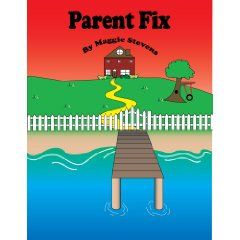Author Maggie Stevens is the author of a new book called Parent Fix. She works on the philosophy that when parents change, kids change. Stevens says there are three common conditions at home that typically lead to negative behavior in kids.
1. Too Much Control
Control is a major problem in today’s families. Control creates battles between parent and child and causes an immeasurable breakdown in family communication.
If we are to be successful in our families, we need to find a compromise with control. Control is so commonplace we often do not recognize when it is being used on us, nor are we able to stop ourselves when we inflict control upon our children. A good definition of control: When you take away someone’s rights or freedoms, you are using control.
Parental control takes away our children’s choices. Not only does control take away trust in the parent/child relationship, but children will seldom ask for your advice or respond to your requests. When the behavior your child is exhibiting is rebellion, there is too much control in your home.
2. Frequent Nagging & Criticism
Too many parents are destroying their relationships with their children. Your children will not want to interact with you if they know that every conversation they have with you will be something they do not want to hear. As a parent, when you criticize your child, nag or speak negatively, you are making your child feel terrible about themselves. Bit, by bit, when you demean your child in any way, shape or form, you are destroying self-esteem.
In order to recover, they will find another way to feel good again. Negative behaviors like drug and alcohol abuse occur when a child feels bad about himself. When your child is confronted with critical decisions, it is the strength of your relationship that will make the difference in your child’s ability to resolve them. Parents need to change this ugly practice and let love be the language that is spoken in their homes.
3. Senseless Discipline
The word discipline comes from the Latin word disciple, which means to teach or to learn. Discipline was never designed to be a form of punishment. As parents, we often put more emphasis on punishment rather than focusing on teaching correct principals and behaviors. Remember, a mistake is not a mistake if a child learns something.
When parents try to meet the needs of their child, instead of getting angry and inflicting senseless discipline, negative behaviors will disappear.
To ask questions, join the discussion board, or schedule Maggie for a parenting workshop, visit
www.parentfix.com
Parent Fix by Maggie Stevens
Available at:
King’s English Book Shop
Frost’s Books
Amazon.com














Add comment